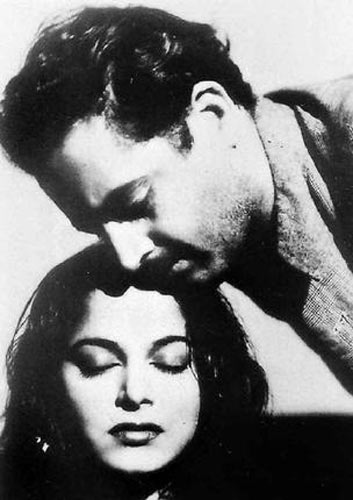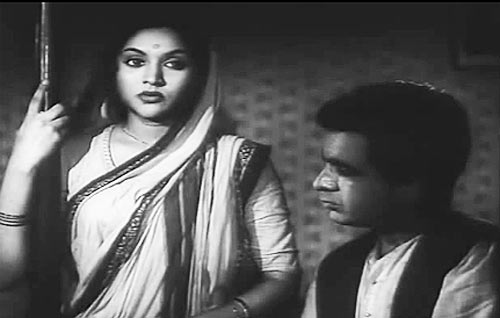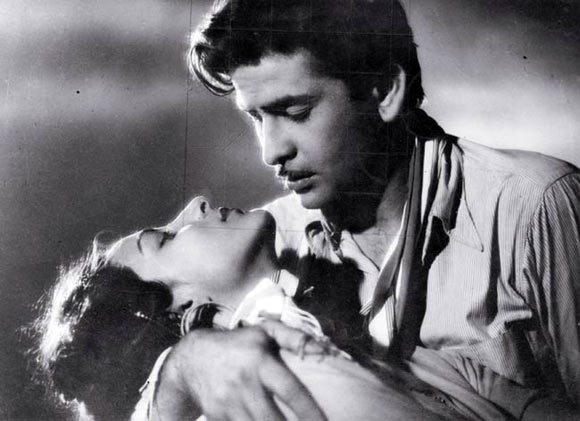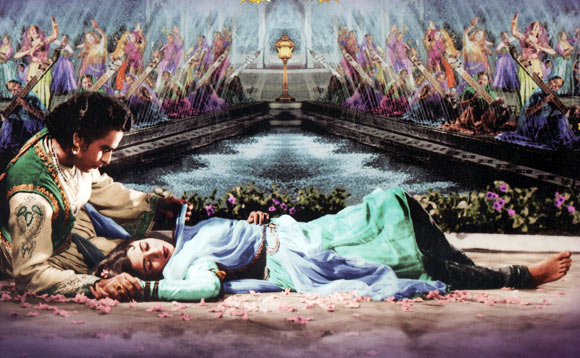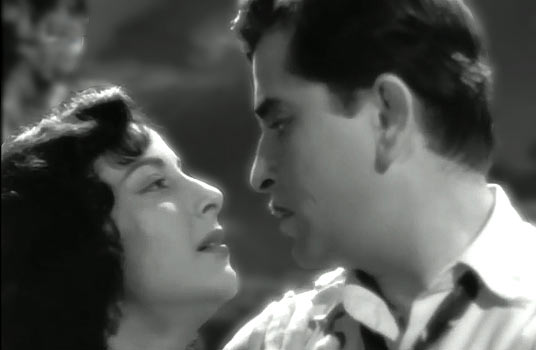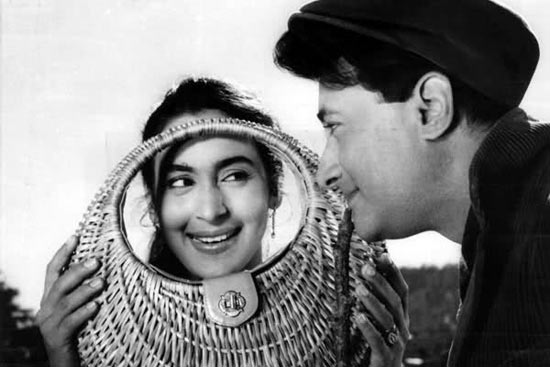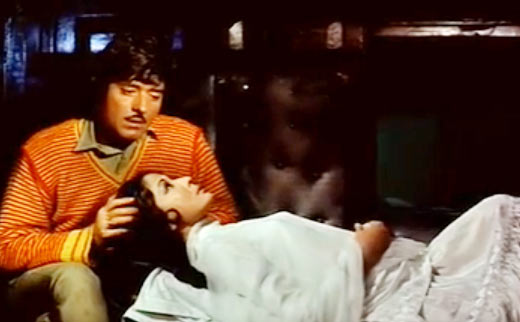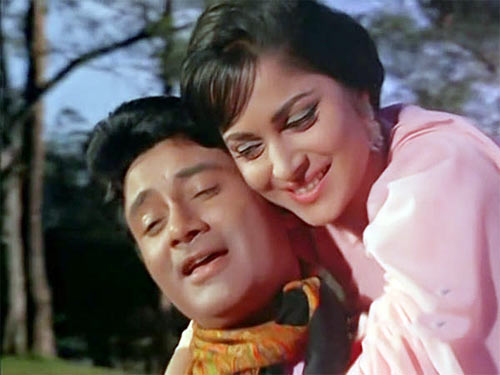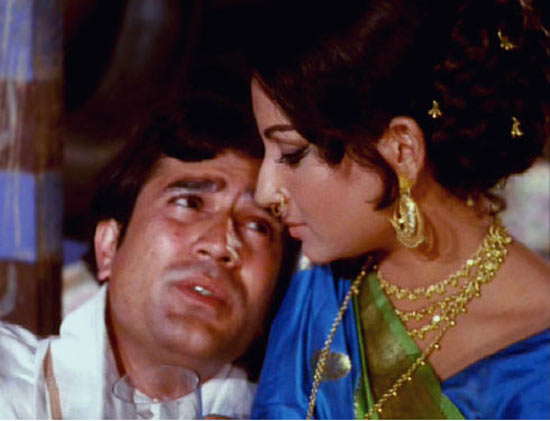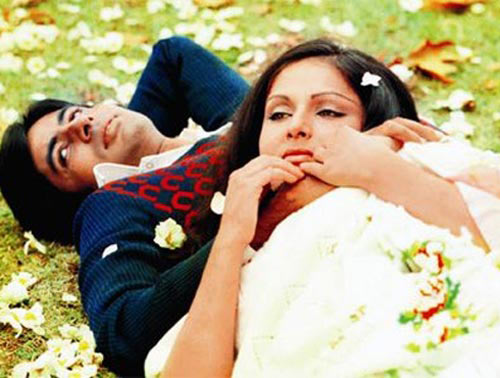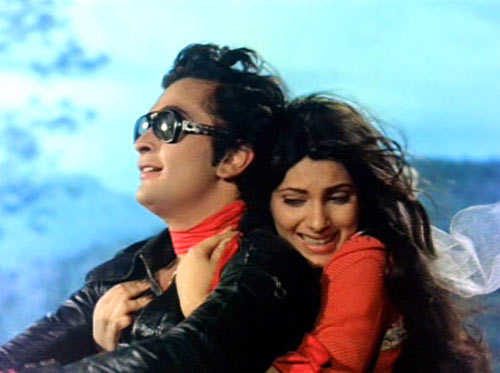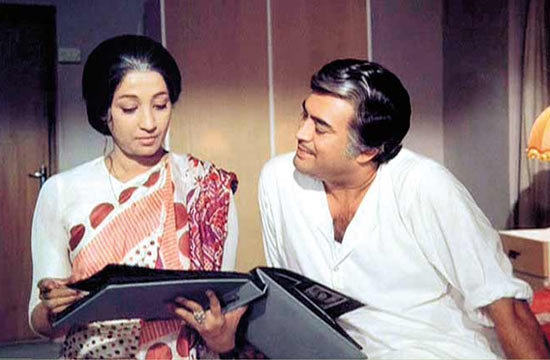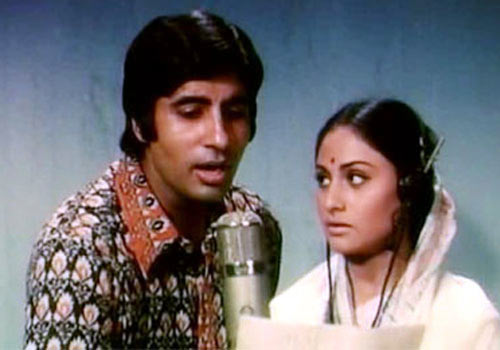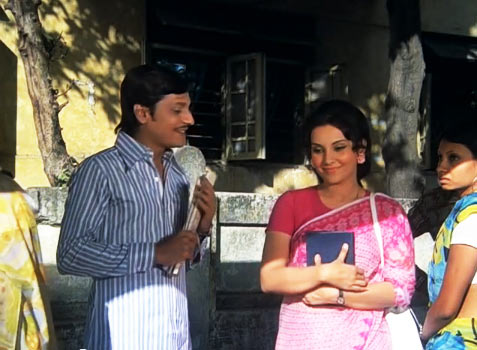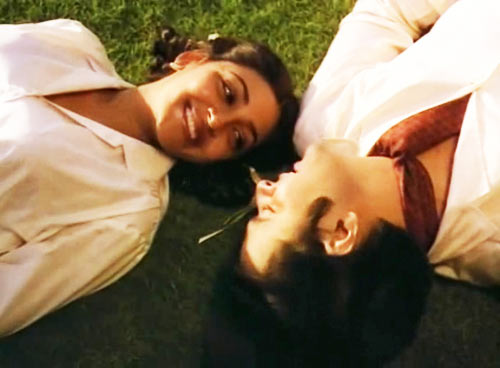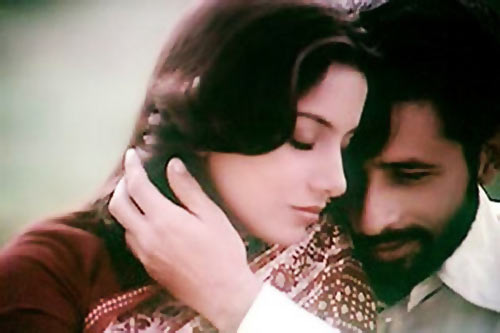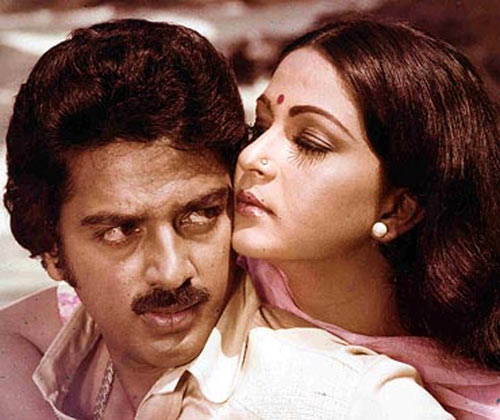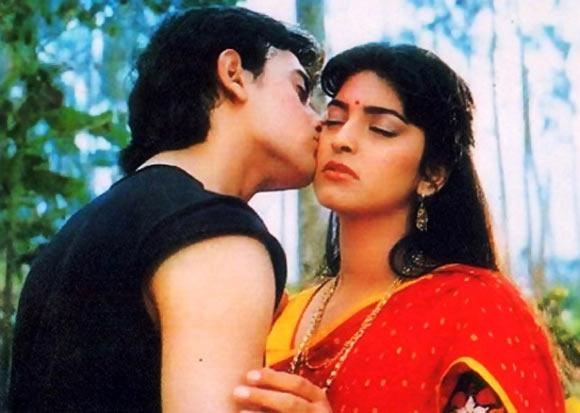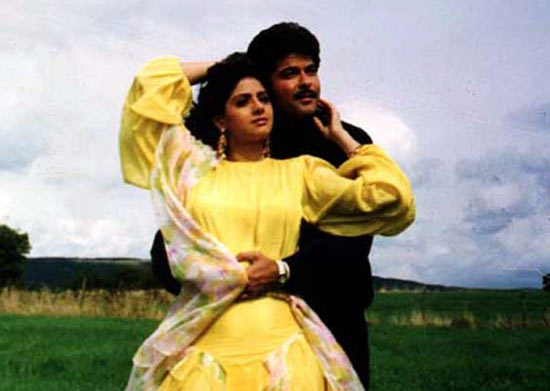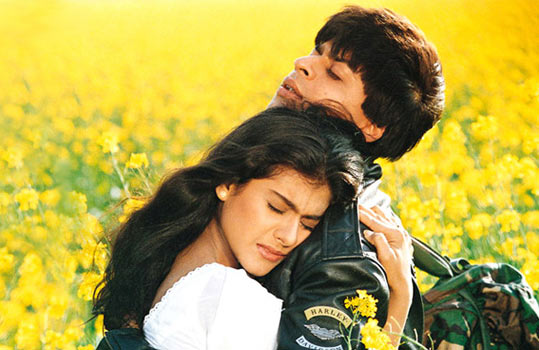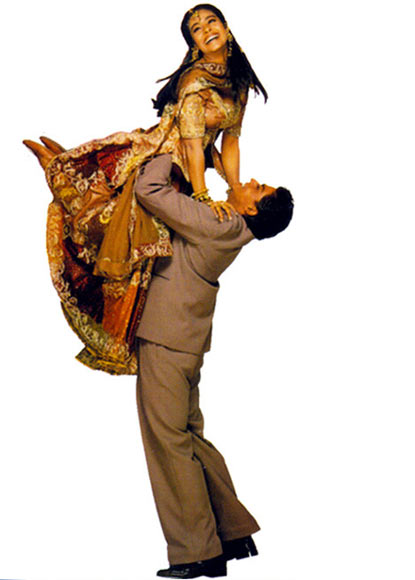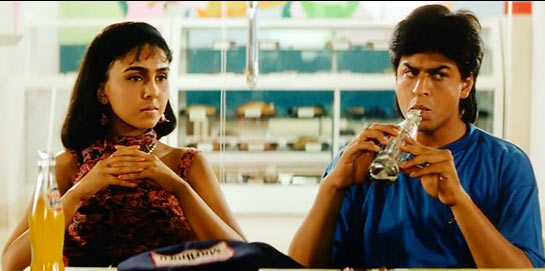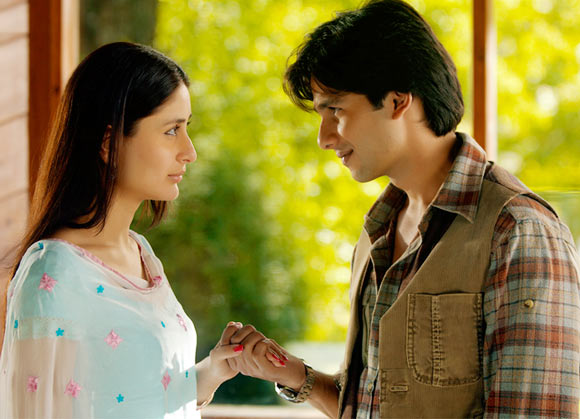 | « Back to article | Print this article |
The BEST Love Stories in Bollywood
Regardless of what social, economical or political crisis the country is going through, Bollywood is always in the mood for love.
Perhaps it's the reassuring nature of how the hero and heroine, in due course, will surmount all troubles to find solace in each other's arms till eternity.
Perhaps it's the tenderness of a cynicism-free ardour and unwavering commitment that resonates with/fascinates the romantic/sensible viewer.
Bottom-line is, silver screen romances are a beloved component of Hindi cinema even if their face, with changing times, has altered to suit the taste or trends of the contemporary.
The year 2013 has been quite favourable to the genre with three super hits like Yeh Jawaani Hai Deewani, Aashiqui 2 and Raanjhanaa. And considering this Friday's release, Vikramaditya Motwane's Lootera, is also a charming, old-fashioned take on boy-meets-girl, Bollywood is officially love-struck.
On that note, here's a look at 25 of its Best On-Screen Love Stories over the years.
Pyaasa
Widely dubbed as Guru Dutt's masterpiece, Pyaasa's accomplishments are no exaggeration.
In its profound narrative and heartbreaking gloom, where society neglects and close ties crumble, it's the delicate yet resilient bond between a disillusioned poet (Dutt) and sympathetic prostitute (Waheeda Rehman) that prospers and culminates into a memorable final scene where 'saath chalogi?' is all he needs to say, is all she needs to hear.
Devdas
Bimal Roy's soulful adaptation of Sarat Chandra Chattopadhyay's tragic triangle deals with the worst thing to hit a relationship -- cowardice.
Devdas doesn't have the nerve to be with the woman he loves. And when he loses her, he doesn't have the nerve to move on, embracing the path of self ruin by turning into an unstoppable alcoholic.
Roy's perceptive touch and Dilip Kumar's dedicated delivery along with an ethereal Suchitra Sen as Paro and spirited Vyajyanthimala as Chandramukhi unravels three unique responses to heartache through its iconic characters producing timeless results.
Barsaat
Remember the famous RK banner logo where Raj Kapoor is holding Nargis in one hand and a violin in another? It forms one of the most crucial moments in Barsaat and revealed the earliest signs of their renowned chemistry.
The Kapoor-directed romance, featuring two couples (RK-Nargis, Premnath-Nimmi), aims for something more meaningful than simply breezy songs and pretty-faced flirtations, it looks at the same premise -- city boy pursues village girl -- against two diverse attitudes and the repercussions it leads to.
Mughal-E-Azam
K Asif's grand-scale passions between a handsome Prince and exquisite courtesan are stuff celluloid dreams are made of.
And, befittingly enough, the majestic Dilip Kumar and his divine Anarkali (played by Madhubala) raise the bar of 'pyaar' to unprecedented heights, even when he's only caressing her face with a gentle feather.
Chori Chori
Though inspired by the Frank Capra classic, It Happened One Night, Chori Chori carves its own identity with the endearing bantering between a sarcastic Raj Kapoor and spoilt Nargis against the backdrop of delectable Shankar-Jaikishen melodies.
It was later remade as Dil Hai Ki Manta Nahin with Aamir Khan and Pooja Bhatt in 1991.
While Chori Chori met with terrific approval, the legendary camaraderie breathed its last with this on-the-road rom-com if you discount a climatic cameo by the actress in RK's Jaagte Raho.
Tere Ghar Ke Saamne
In this sparkling romance comedy about a lovely pair and their disapproving, at loggerhead fathers, Dev Anand and Nutan effortlessly emerge as a couple you adore and root for through thick and thin.
Vijay Anand's witty writing (plus direction) and Sachin Dev Burman's lilting melodies add the 'feel good' in the romance.
Paakeezah
Back when wooing a woman was understated and classy, Raaj Kumar floored both Meena Kumari and the audience with one awe-inspiring dialogue: Aap ke paon dekhe, bahut haseen hai. Inhe zameen par mat utariyega -- maile ho jayenge.
Kamal Amrohi captures the stunning imagery of romance through Meena Kumar's lyrical expressions and his leading man's emphatic baritone to bring about the nearly impossible union between a courtesan and nobleman.
Guide
The protagonists in Vijay Anand's acclaimed adaptation of R K Narayan's book are not black or white but erratic and erring. And this is what makes their impulses distinct and their redemption valuable.
But a large portion of Guide's exceptional soul comes from the defiance exhibited by Waheeda Rehman's erstwhile suppressed wife, her bold (especially in the 1960s) decision to end a disappointing marriage, move in with Dev Anand's visibly supportive suitor and, ultimately, the change in their affectionate dynamics.
Amar Prem
Love is too enormous for definitions and descriptions. The science of relationships is a constant path t discovery.
There's a lot of wisdom to be found in the special bond shared by a brothel singer and a disenchanted man in an empty marriage. The understood fondness between a quirky Rajesh Khanna and melancholic Sharmila Tagore is what makes Shakti Samanta's Amar Prem truly beguiling.
Kabhi Kabhie
Few understand the language of love like filmmaker Yash Chopra. And the two generation romance in Kabhi Kabhie articulates this skill flawlessly, wholesomely.
The director, with his immaculate casting sense, great ear for music and appreciation for nifty writing, explores the multiple facets of the L-word through characters filled with warmth, grace, resentment, regret, confusion and dedication.
Bobby
Raj Kapoor's take on young, rebellious teen love became a huge rage in its time. It also launched the careers of solid talents like Rishi Kapoor and Dimple Kapadia.
But it's not so much about class barriers between the couple involved as it is about the raw moments Bobby creates with its disarming spontaneity that lends our 'dosti' with this 1973 blockbuster its longevity.
Aandhi
Mature take on romance often takes a backseat in Bollywood's obsession with the young and restless. Gulzar's Aandhi, however, is an elegant exception to the rule.
In his touching drama about an estranged middle-aged husband (Sanjeev Kumar) and wife (Suchitra Sen) reminiscing their days of togetherness, reconciling with their present, the filmmaker and poet examines the intricacies of marriage, the challenges it faces while underscoring the beauty of details and nuances.
Abhimaan
Romance isn't about looking into each other's eyes and spewing poetry. Even love marriages go through their share of ups and downs, insecurities and upheavals as pointed out deftly by director Hrishikesh Mukerjee's marital drama, Abhimaan.
At the same, the filmmaker focuses on how something as tricky as rivalry in marriage can be overcome if handled with sense and sensibility though compelling performances from Amitabh and Jaya Bachchan.
Chhoti Si Baat
In our movies, men go through all sorts of trouble to win over ladylove.
Playing on this mindset, Basu Chatterjee's Chhoti Si Baat concocts a cute love story between a nervous office goer and the girl at the bus stop after the guy takes formal training in personality development and wooing women from a retired army-man.
Amol Palekar's sweet awkwardness and Vidya Sinha's playful fervour makes Chhoti Si Baat a model middle-class romance.
Chashme Baddoor
No matter how successful David Dhawan remake is, it cannot overwrite the fun memories created by Sai Paranjpe's Delhi-based rom-com starring Farookh Shaikh and Deepti Naval as one of the most believable couples in Bollywood history.
While the story goes through an entire gamut of hilarious twists and turns, it's the delightful interactions between the two over detergent or dessert that we never seem to get enough of.
Sparsh
In another gem from Paranjpe, Sparsh is about two lonely souls finding an anchor in each other. While the film is often heralded for its accurate portrayal of the visually-impaired, it's essentially a love story between Naseeruddin Shah's blind school principal and a young widow who volunteers to teach (Shabana Azmi).
The delicate manner in which they conquer their fears, doubts and prejudices to develop a deep understanding of each other is what Sparsh unravels.
Ek Duuje Ke Liye
Brash love knows no censure and will strive to stay together against all odds, as established in K Balachander's high-strung Ek Duuje Ke Liye.
Language, caste, community and disapproving parents prove to be pointless hurdles in Kamal Haasan and Rati Agnihotri's path, which is all very entertaining until Balachander decides to startle us with its mega shock ending.
Qayamat Se Qayamat Tak
Given the nostalgia it triggered recently, on its silver anniversary, there's clearly no shortage of members in the QSQT Fan Club.
And why not? Aamir Khan's boyish charm and Juhi Chawla's sparkly innocence beams up ever single frame of Mansoor Khan's lively take on Romeo and Juliet even after 25 good years.
Maine Pyaar Kiya
Close on the heels of QSQT followed Sooraj R Barjatya's much-loved Maine Pyaar Kiya, which gave the industry another Khan -- Salman and a likable leading lady -- Bhagyashree. While the latter chose premature retirement to settle in marital bliss, Salman Khan strengthened his position as Prem.
The sheer goodness of Barjatya's universe and the incorruptible quality of Prem and Suman, their vivacious romance had the audience quoting their lines verbatim.
Lamhe
Yash Chopra made several romances in his lifetime, enough to warrantee a feature of its own. But if one were to pick the film where he truly pushed the boundary, it has to be Anil Kapoor and Sridevi's Lamhe.
Some argued its older guy-younger girl romance to be ahead of its time. Some deemed the climax too inappropriate -- a man proposing to the daughter of a woman he once loved.
Despite these complexities or commercial failure, Chopra establishes the reasons of heart with such finesse, the union, appears both classy and essential.
Hum Aapke Hain Koun..!
With this one film, Barjatya changed the face of Indian weddings and Bollywood romances (where it became mandatory to feature at least one wedding) for better or worse.
The super duper success starring Madhuri Dixit and Salman Khan is basically a one-line story idea stretched into a three-hour plus movie. But the sprightly duo, their gorgeous chemistry and how they fall in love around a crowd of relatives is what appealed to the masses hugely.
Dilwale Dulhania Le Jayenge
We once asked you to name the greatest romantic Hindi film of all time and the message board was inundated with Aditya Chopra's directorial debut.
Everything about Dilwale Dulhania Le Jayenge -- Raj, Simran, Bauji, mustard fields, Ruk ja, Mehendi, Undekha Anjaana Chehras, has been spoken about, emulated, celebrated -- on screen, off it, in media, in print to exhausting limits but there's simply no getting over this epic.
Kuch Kuch Hota Hai
Quite happy to play second fiddle to this overpowering giant is buddy Karan Johar with his first film as director, Kuch Kuch Hota Hai featuring the same leading actors -- Shah Rukh Khan and Kajol.
K Jo's Riverdale-ized version of college campuses and a story that's both Mills and Boons and desi gave the audience oodles to laugh and cry about as they witnessed two best friends Rahul and Anjali, finally, achieve their happily ever after.
Kabhi Haan Kabhi Naa
Shah Rukh Khan has played the romantic hero in so many confections in his career he couldn't resist but lampoon that image in Om Shanti Om. There's nothing to deride about his most heartfelt lover boy though, as, not Raj, not Rahul but Sunil.
Kundan Shah's Kabhi Haan Kabhi Naa is not your regular boy-meets-girl tripe. Here the boy is head over heels in love with his childhood buddy who treats him exactly like one -- a good friend. SRK's endearing antics to win her by hook or crook is easily his most unaffected portrayals.
Jab We Met
Kareena Kapoor and Shahid Kapoor may have called it splits right before Imtiaz Ali's Jab We Met released but it made no difference to their best collaboration together.
The crunchy dialogue, free flowing script and superlative performances from the two actors as Geet and Aditya entailing their madcap adventures on the road makes Jab We Met so much more than an ideal date movie.

